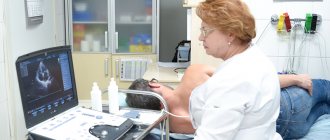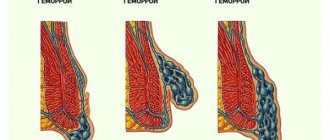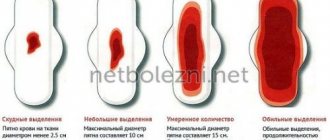Detailed description of the study
Normally, the thyroid gland, under the influence of the pituitary thyroid-stimulating hormone (TSH), synthesizes two hormones that affect the metabolism of the entire body: T3 (triiodothyronine) and T4 (thyroxine). The difference between them is that the first hormone contains three iodine molecules, and the second - four.
The biological activity of T3 is 3-4 times higher than T4. Both hormones enter the blood and circulate in it independently (free fraction) or by combining with blood plasma proteins. This study reveals the concentration of total T3 in the blood.
Total T3 is the total indicator of hormone fractions bound and unbound to plasma proteins in the blood. Most bound T3 is transported by albumins, prealbumins, and to a lesser extent by a special protein, thyroxine-binding globulin. Unbound (free) T3 molecules have greater biological activity than bound fractions.
The main functions of the T3 hormone include:
- Regulation of protein, fat and carbohydrate metabolism;
- Supports the physiological functioning of the heart (heart rate, blood pressure);
- Regulation of energy metabolism (acceleration of basal metabolism, maintaining body temperature);
- Participation in growth and development, especially in children: T3 accelerates growth, promotes the development of cognitive functions.
The physiological level of the hormones T3 and T4 (together with TSH) ensure optimal functioning of the thyroid gland - this condition is called “euthyroidism”. Disruption of the thyroid gland is accompanied by an increase (hyperthyroidism) or a decrease, and sometimes a complete loss of its function (hypothyroidism). Hypothyroidism and hyperthyroidism are nonspecific syndromes and can occur against the background of various diseases of the thyroid gland and the hypothalamic-pituitary system.
Symptoms of hypothyroidism may include:
- General weakness, drowsiness;
- Constipation (constipation);
- Slow heart rate (bradycardia);
- swelling of the face, limbs or trunk;
- Sensation of a “foreign body” in the neck due to an increase in the volume of the thyroid gland;
- Difficulty breathing and/or swallowing due to an increase in the volume of the thyroid gland;
- Delayed mental and physical development in children and sexual development in adolescents.
Signs of hyperthyroidism include:
- Headache;
- Anxiety, nervousness;
- Increased sweating;
- Rapid heart rate (tachycardia);
- High fatigue;
- Diarrhea;
- Sleep and eating disorders.
Determining the concentration of T3 in the blood, especially together with identifying the levels of T4 and TSH, makes it possible to establish a dysfunction of the thyroid gland and begin timely treatment.
T3 increased
The T3 level increases, as a rule, against the background of hyperfunction of the glandula thyreoide. This occurs in parallel with an increase in T4 production, but with T3 thyrotoxicosis, the thyroxine content may remain within normal limits.
An increase in triiodothyronine content leads to the appearance of specific symptoms:
- diarrhea;
- insomnia;
- hypertension;
- tachycardia;
- fussiness;
- photophobia;
- anxiety;
- trembling hands;
- heartbeat;
- tearfulness;
- rapid weight loss;
- sudden aggression;
- nervous excitability;
- feeling of “sand in the eyes”;
- frequent urge to urinate;
- enlargement of the mammary glands in men;
- hyperthermia, in the absence of cold symptoms;
- irritability, turning into lethargy and further into apathy;
- menstrual cycle disorders in women - disruptions, heavy bleeding, severe pain.
Gynecomastia is one of the signs of increased triiodothyronine levels
An increase in triiodothyronine concentration may be a symptom of the following diseases:
- Thyrotrypinoma is a benign tumor of the pituitary gland, which, through increased secretion of thyrotropin, stimulates increased production of T3 hormone.
- Toxic goiter. In this case, the doctor diagnoses an increase in the size of the gland, increased heart rate and protrusion of the eyeballs.
- Isolated T3 toxicosis.
- Thyroiditis, which is an inflammatory lesion of the organ.
- Thyrotoxic adenoma is a benign neoplasm of the thyroid gland that causes hypersecretion of hormones.
- Postpartum dysfunction of the endocrine system.
- Choriocarcinoma is a malignant tumor that forms from germinal tissues during pregnancy.
- Hemodialysis. Instructions for artificial cleansing of the circulatory system indicate a possible increase in hormonal levels.
- Chronic liver and kidney diseases.
Tactics for increasing T3 content
For further examination and treatment, you should contact an endocrinologist. The doctor will decide on treatment tactics; as a temporary measure, thyreostatics will most likely be prescribed - substances that suppress or block the production of thyroid hormones. The price of treatment depends on many factors, but the earlier the fight against pathology begins, the lower it is.
References
- Hypothyroidism. Clinical recommendations. Association of Endocrinologists of Russia, 2021. - 38 p.
- Federal clinical guidelines for the diagnosis and treatment of thyrotoxicosis with diffuse goiter (diffuse toxic goiter, Graves-Bazedow disease), nodular/multinodular goiter, 2014. - 45 p.
- Encyclopedia of clinical laboratory tests / ed. WELL. Titsa. - M.: Labinform, 1997. - P. 461-465.
- Kumar, V., Abbas, A., Fausto, N. et al. Robbins and Cotran Pathologic Basis of Disease, 2014. - 1464 p.
T3 decreased
The decrease in triiodothyronine content occurs solely against the background of a decrease in the production of all other thyroid hormones.
This phenomenon is observed in several serious pathologies:
- hypothyroidism;
- endemic goiter;
- Hashimoto's thyroiditis;
- treatment with radioactive iodine;
- resection of part of the glandula thyreoide or the entire gland with a cavity;
- taking certain medications containing large amounts of iodine, such as cordarone and others.
The drug "Cordarone" can provoke a decrease in thyroid hormone levels
It should be noted that the drop in thyroid hormone levels does not occur chaotically. At first, there is always a decrease in T4 content, and then in triiodothyronine. There is a reason for this.
The activity of T3 is ten times higher than that of T4, therefore, with an acute need for T3, the mechanism of peripheral conversion of thyroxine to triiodothyronine is triggered. And only after T4 reserves are depleted, T3 begins to noticeably decrease.
If, nevertheless, T3, T4 total or free dropped significantly, symptoms of hypothyroidism begin to develop, manifested by:
- swelling;
- nausea;
- constipation;
- chilliness;
- hypotension;
- hypothermia;
- drowsiness;
- puffiness;
- general weakness;
- decrease in speech quality;
- increase in body weight;
- dry skin;
- decreased activity of thinking;
- menstrual cycle disorders;
- depression coupled with irritability;
- decreased potency, up to impotence;
- myxedema (in severe forms of pathology in adults);
- cretinism (with severe disease in children).
Impotence may also be based on a decrease in T3 levels
Also, the reasons why free T3 or total T3 decreases can be pathologies of the pituitary gland, such as hypopituitarism, empty sella syndrome, and others.
Tactics for reducing T3
Most often, treatment begins with the prescription of replacement therapy, synthetic analogues of thyroid hormones. But, in any case, if the T3 level decreases, self-medication is strictly prohibited; you should immediately seek advice from an endocrinologist.
How to prepare for the analysis?
Blood is taken to determine hormone levels in the morning, on an empty stomach. However, the patient is allowed to drink sweetened water.
If the patient has undergone surgery on the thyroid gland, is taking medications, or has recently completed a course of radiotherapy, then blood for the T3 hormone is taken no earlier than 14 days later.
To obtain an accurate result, you need to stop taking medications for 2 days. In particular, oral contraceptives can distort the data.
Difficulties in conducting analysis
Carrying out an analysis to detect the level of triiodothyronine is considered a rather complex procedure. Errors often occur in laboratories. You can think about these on your own if an additional test was carried out to identify the level of other thyroid hormones - TSH and T4. If the results obtained show that TSH is normal and the T3 hormone is elevated, then most likely an error has occurred. The unreliability of the analysis can also be judged on the basis of an increase in T3 and TSH, but normal T4 values. If such results were obtained, then it makes sense to double-check the data. This is due to the fact that when T3 increases, the TSH level decreases and T4 increases.
If the tests were carried out qualitatively and the results clearly indicate an increase in triiodothyronine, it is necessary to consult an endocrinologist.
T3 and pregnancy
During pregnancy, the concentration of triiodothyronine can go beyond normal limits, but this does not indicate the onset of the disease. In the first trimester, this is even considered as a variant of the norm, especially since in the second trimester, T3 free and total, the difference between the contents of which in this case does not matter much, return to previous indicators.
If the concentration of the hormone drops, then in this case doctors will take emergency measures and prescribe the pregnant woman hormone replacement therapy with synthetic analogues of triiodothyronine. This should be done as quickly as possible so that the fetus does not suffer due to an acute lack of T3.
Fetal development may go wrong if the level of T3 hormone in the blood decreases
An accurate determination of the total triiodothyronine content during pregnancy is difficult, since in this state the test subject’s body intensively synthesizes proteins, some of which bind the hormone, resulting in an increased result. This will do nothing but add extra stress to the pregnant woman.
And for accurate diagnosis, the level of free T3 is used. Therefore, for pregnant women, the question of whether T3 is common or free, which one to take, can be answered that preference should still be given to the free one.
What is the T3 hormone responsible for?
T3 hormone is a thyroid hormone and is the more active of the two main hormones. You can find another name for it – triiodothyronine. The presence of the number three in the definition of a hormone is explained by the fact that each of its molecules contains exactly that amount of iodine.
T3 is formed as a result of the breakdown of another hormone - T4, when one iodine atom is split off from it. The process that occurs after the splitting of an atom can be compared to the process of removing the pin from a grenade. The transformed, previously sedentary T4, having transformed into triiodoitrine, becomes very active.
Its purpose is to control the energy metabolic processes occurring in the human body. The hormone influences the breakdown of energy and sends it to where it is needed. Once in the bloodstream into the cells of the child’s brain, the hormone promotes its rapid development. Thanks to the work of triiodothyronine, nerve conduction is enhanced in an adult.
Triiodothyronine is important for the cardiac system and bone tissue, as it helps activate metabolism in them. General nervous excitability increases under the influence of triiodothyronine.
- Signs of elevated T3 levels
- Difficulties in conducting analysis









